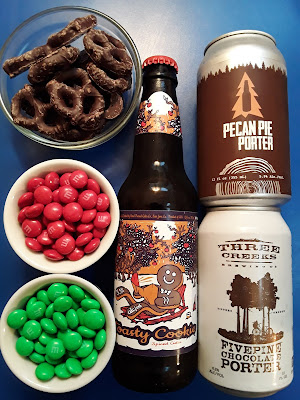The following blog post came to me after reading an email in which a friend wrote the phrase: "I guess I better....". It got me thinking, because I've also noticed that phrase in my self, in various situations. It is sometimes also phrased as "I guess I better stop...."The following is intended to be helpful for evaluating whether or not a given activity is "working" or bringing benefits or bringing pleasure for your unique situation.
Based on some of my philosophy studies, this personal exploration of a hedonic calculus leads to an evaluation of activities and possible future decisions in light of one's own individual pleasure and benefit. Of course we must honor all social commitments and agreements, as well as deeply consider the well-being of our loved ones.
In Epicureanism the word "pleasure" has a complicated understanding - it's not just short-term sensory pleasures, but also includes long-term mental pleasures such as peace of mind. The following is a way to evaluate a given activity for both long-term and short-term benefits and pleasure. Life is a balance of activities between working for daily provisions/long-term security, meeting daily needs (eating, sleeping, etc.), people engagement/commitments (friends/family/community), cultural engagement/expression (art/music), and aesthetic/sensory enjoyment (walking in nature, enjoying the smell and taste of fresh coffee, etc.). Also consider how relationships/friendships/good family connections, when they function well, can contribute to a greater overall sense of security, peace of mind, and mutual/shared enjoyment of life.
"Activities Evaluation" (both short-term and long-term).
State the specific activity (or possible future decision) that you wish to evaluate:
Evaluate this activity (or possible future decision) by choosing the best guess for each point below:
1) How likely is this to result in the pleasure and enjoyment of increased future security?(Increased resources of monetary, material goods, or friendship/community).
---Gauranteed/Likely/Uncertain/Unlikely/Impossible--- -(or not applicable)-
2) How likely is this to result in the pleasure and enjoyment of increased status or good reputation? (Being evaluated by others as knowledgeable, wise, skilled, courageous, or compassionate AND which also leads to increased resources of friendship/community. *Virtuous activities engaged in during isolation and/or exhibited only in the presence of strangers are less likely to increase "social security" and less likely to lead to long-term benefit).
---Gauranteed/Likely/Uncertain/Unlikely/Impossible -(or not applicable)-
3) How likely is this to result in the pleasure and enjoyment of more stable existing relationships and/or new friendships/new community engagement?
4) How likely is this to result in pleasure and enjoyment from increased skill and artistic flow? (The joy of doing this, and the enjoyment of the focused discipline to do this).
---Gauranteed/Likely/Uncertain/Unlikely/Impossible--- -(or not applicable)-
5) How likely is this to result in immediate sensory pleasure and enjoyment?
---Gauranteed/Likely/Uncertain/Unlikely/Impossible--- -(or not applicable)-
6) How likely is this to result in a bad outcome? (Loss of property/wealth/reputation, loss of friendship/community, loss of good health, emotional/physical pain caused to self or to others, or a conflicting opportunity cost (time which could have gone to establishing future security -or- a more pleasure-worthy endeavor).
---Gauranteed/Likely/Uncertain/Unlikely/Impossible--- -(or not applicable)-
7) How likely is this to lead to an immediate sense of satiation or feeling of satisfaction?
---Gauranteed/Likely/Uncertain/Unlikely/Impossible--- -(or not applicable)-





No comments:
Post a Comment